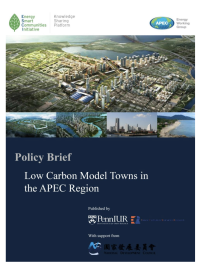Key Message
The development of Low Carbon Model Towns requires a multi-faceted approach that integrates national policies, local initiatives, and community engagement. Successful LCMT projects demonstrate the effectiveness of coordinated efforts in reducing carbon emissions and promoting sustainable urban growth. Key strategies include implementing smart transportation systems, green building standards, renewable energy solutions, and efficient waste management practices. By sharing best practices and fostering collaboration among APEC economies, the ESCI aims to create replicable models of low carbon towns that can be adapted to different local contexts, ultimately contributing to global efforts in mitigating climate change and enhancing energy security



